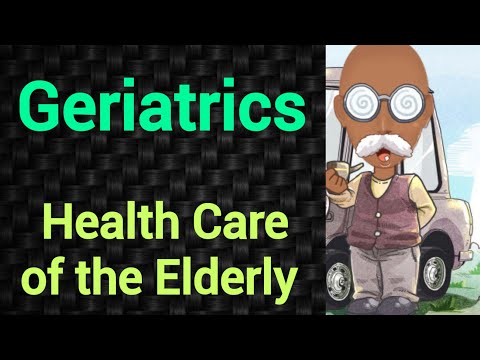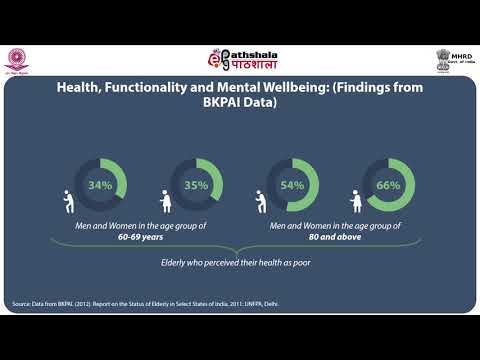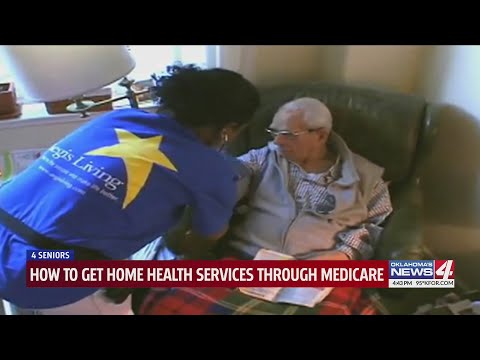What You Need to Know About Elderly Health Care
Contents [show]
As we age, our health care needs change. Here’s what you need to know about elderly health care, from insurance to common health concerns.
Checkout this video:
The Importance of Elderly Health Care
As people live longer, the need for elderly health care services is increasing. The term “elderly” generally refers to people aged 65 and older, but depending on the context, it may also refer to those aged 50 and above. Elderly health care covers a wide range of services and can be provided in a variety of settings, including hospitals, nursing homes, assisted living facilities, and even at home.
Elderly health care is important because it helps seniors stay independent and improve their quality of life. It can also prevent minor health problems from becoming serious ones. When choosing elderly health care services, it’s important to consider the individual needs of the seniors in your life. Some seniors may need help with everyday tasks like bathing, dressing, and eating, while others may only need occasional assistance with transportation or medication management.
There are a variety of eldercare services available to meet the needs of seniors. Some common types of eldercare services include:
–Home Health Care Home health care agencies provide nursing, rehabilitation, and other types of health services in the comfort of a person’s home. Services can be provided on a part-time or full-time basis, and they are often covered by Medicare or private insurance.
– Adult daycare: Adult daycare centers provide a safe place for seniors to spend the day while their caregivers are at work or running errands. These centers offer social activities, meals, and other forms of support and can be an important resource for families who are struggling to balance work and caregiving responsibilities.
– Transportation: Many eldercare services offer transportation assistance to help seniors get to doctor’s appointments or run errands. This can be especially helpful for seniors who no longer drive or have difficulty using public transportation.
– Respite care: Respite care provides temporary relief for caregivers who are caring for elderly family members with chronic illnesses or disabilities. These short-term stays can occur in a variety of settings, including nursing homes, assisted living facilities, or adult daycare centers.
The Different Types of Elderly Health Care
There are many different types of elderly health care, each with its own benefits and drawbacks. Here is a brief overview of the most common types of care, so you can make an informed decision about which type of care is right for your loved one.
In-home care In-home care is typically less expensive than nursing home care, and it allows your loved one to maintain some degree of independence. However, it can be disruptive to family life, and it may not be appropriate for seniors with complex medical needs.
Assisted living: Assisted living facilities provide a variety of services, including help with activities of daily living, social activities, and access to medical care. They typically cost more than in-home care, but they offer a higher level of support and supervision.
Nursing home care: Nursing homes provide 24-hour skilled nursing care and support for seniors with complex medical needs. They are the most expensive option for elderly health care, but they allow seniors to receive the level of care they need.
The Cost of Elderly Health Care
Elderly health care can be expensive, and the cost is only expected to increase as the population ages. According to a report from the Congressional Budget Office, spending on Medicare and Medicaid is projected to nearly double as a share of the economy by 2040.
There are a number of factors that contribute to the high cost of elderly health care, including the fact that older adults tend to have more chronic health conditions than younger adults. They also generally require more prescription medications and have more frequent doctor and hospital visits.
One way to reduce the cost of elderly health care is to encourage healthy aging through lifestyle choices such as eating a healthy diet, exercising regularly, and maintaining a healthy weight. Additionally, there are a number of ways to reduce the costs of prescription medications, such as using generic drugs whenever possible.
The Benefits of Elderly Health Care
There are many benefits to elderly health care, including the prevention of disease and injury, the promotion of healthy aging, and the provision of care and support for those who are frail or have chronic health conditions.
Elderly health care can help to prevent falls and other accidents, which are a leading cause of death and injury among older adults. It can also help to prevent or delay the onset of chronic health conditions such as heart disease, stroke, and dementia. In addition, elderly health care can provide support and assistance for those who need help with activities of daily living such as dressing, bathing, and eating.
Elderly health care is an important part of promoting healthy aging. Elderly adults who receive regular primary care and preventive services are more likely to remain independent and living in their own homes for longer periods of time than those who do not receive such care. In addition, elderly adults who have a regular doctor or nurse they see on a regular basis are more likely to receive timely diagnosis and treatment for health problems, which can improve their overall health and well-being.
The Risks of Elderly Health Care
As people live longer, the health care system faces greater challenges in providing care for the elderly. Older adults are more likely to have chronic health conditions, such as heart disease, stroke, diabetes, cancer, and arthritis. They are also more likely to take multiple medications for these conditions. These factors can make it more difficult for them to stay healthy and live independently.
There are a number of risks associated with elderly health care. One of the most common is the risk of falling. This can be a serious problem for older adults, who are more likely to break a bone if they fall. Falls can also lead to other injuries, such as head injuries and back injuries.
Another risk associated with elderly health care is the risk of infection. Older adults are more susceptible to infections because their immune systems tend to be weaker than those of younger people. Infections can cause a number of serious problems, including pneumonia and sepsis (a potentially life-threatening condition caused by infection).
In addition, older adults are at increased risk for mental health problems, such as depression and anxiety. They may also have difficulty coping with the changes that come with aging, such as the loss of loved ones, retirement, and declining physical abilities.
It is important to be aware of these risks when considering elderly health care options. There are a number of ways to reduce these risks and improve the quality of life for older adults. Some steps that can be taken include:
-Making sure that older adults get regular physical activity. Exercise can help reduce the risk of falling and improve overall health.
-Eating a healthy diet and taking supplements as needed to maintain good nutrition.
-Getting regular checkups and screenings for conditions such as heart disease, stroke, cancer, and arthritis.
-Making sure that immunizations are up to date
The Effectiveness of Elderly Health Care
As we age, our health needs change. We become more susceptible to certain diseases and conditions, and we may require more frequent or different types of medical care. That’s why it’s important to have a health care plan that meets our unique needs.
An elderly health care plan is a type of insurance that covers the cost of medical care for seniors. These plans are typically offered by private insurance companies, but some government programs also offer them.
Elderly health care plans can be a great way to ensure that you have the coverage you need as you age. But it’s important to understand how they work and what they cover before you purchase one. Here are some things to keep in mind:
• Elderly health care plans usually have lower premiums than traditional health insurance plans. This is because older adults generally use less medical care than younger people.
• Most plans have a deductible, which is the amount you have to pay out-of-pocket for your care before the insurance company starts paying. Deductibles can range from a few hundred dollars to several thousand dollars.
• Some plans also require you to pay coinsurance, which is a percentage of the cost of your care that you are responsible for paying. For example, if your coinsurance is 20%, and you have a $100 doctor’s visit, you would owe $20 and the insurance company would pay the other $80.
• Elderly health care plans typically have limits on how much they will pay for your care each year. These limits can range from a few thousand dollars to several hundred thousand dollars. Once you reach your limit, you will be responsible for paying all of your medical costs yourself until the next year when your coverage begins again.
Elderly health care plans can be a great way to make sure you have the coverage you need as you age. But it’s important to understand how they work and what they cover before you purchase one.”
The Impact of Elderly Health Care on Quality of Life
The provision of health care services to the elderly population has a direct impact on the quality of life of seniors. In order to ensure that seniors are able to maintain a high quality of life, it is important to understand the different types of health care services that are available to them.
There are a variety of health care service providers that offer services to the elderly population. These service providers include hospitals, nursing homes, assisted living facilities, home health agencies, and hospices. Each type of provider offers a different level of care, and it is important to choose a provider that is able to meet the specific needs of seniors.
Hospitals are typically the most expensive type of health care provider, and they offer a wide range of services. Hospitals can provide emergency care, medical treatment, surgery, and rehabilitation services. Nursing homes are another type of health care provider that offers a wide range of services. Nursing homes can provide long-term care, short-term care, respite care, and hospice care.
Assisted living facilities offer a less intensive level of care than nursing homes. Assisted living facilities typically provide housing, meals, personal care assistance, and transportation services. Home health agencies provide home-based health care services such as skilled nursing care, physical therapy, occupational therapy, and social work services. Hospices provide palliative care for people who are terminally ill.
It is important to choose a health care service provider that is able to meet the specific needs of seniors. Seniors should discuss their options with their doctor or another healthcare professional in order to make an informed decision about their healthcare needs.
The Challenges of Elderly Health Care
The population of seniors is growing rapidly, and with it comes the challenges of providing adequate healthcare. The elderly often have complex medical needs, and may be more susceptible to serious illness or injury. They may also have difficulty accessing care, due to physical or financial limitations.
As our population ages, it’s important to be aware of the challenges of elderly health care, and to ensure that seniors have access to the care they need. Here are some key issues to keep in mind:
-Many seniors have chronic health conditions, such as heart disease, diabetes, and arthritis.
-Seniors are more likely to take multiple medications, which can interact in dangerous ways.
-Elderly patients may have difficulty communicating their symptoms or understanding their treatment options.
-Seniors may have trouble getting to doctor’s appointments or affording necessary medication.
-Many seniors live alone, and may not have family or friends nearby to help them with their health needs.
If you are a senior, or caring for a senior, it’s important to be aware of these challenges and take steps to overcome them. There are many resources available to help seniors get the care they need, including transportation assistance and prescription drug assistance programs. With a little planning and effort, we can ensure that our aging population stays healthy and happy for years to come.
The Future of Elderly Health Care
As the baby boomer generation ages, the number of seniors in the United States is expected to swell to over 80 million by 2030. Along with this increase in life expectancy will come a rise in chronic health conditions such as heart disease, diabetes, and arthritis. This trend will present new challenges for the health care system, which is already struggling to provide adequate care for an aging population.
In recent years, there has been a growing movement to reform the way we care for our elderly citizens. The goal of these reforms is to provide better quality of life for seniors and to ease the burden on their caregivers. One proposal that has gained traction is the formation of elder-care co-ops. These co-ops would be designed to meet the unique needs of seniors, providing them with social and medical support services as well as a sense of community.
The future of elderly health care is uncertain, but one thing is certain: we must find a way to provide better quality of life for our seniors. With an aging population comes increased responsibility for all of us to ensure that our elders are able to enjoy their retirement years with dignity and respect.
How to Get the Most Out of Elderly Health Care
It is important to be as proactive as possible when it comes to your health care, especially as you age. Unfortunately, many seniors find themselves in a position where they need more health care than they can afford, or they don’t have access to the care they need. If you are a senior citizen, or if you have a loved one who is a senior citizen, there are some things you can do to get the most out of the health care system.
First and foremost, it is important to be your own advocate. Don’t be afraid to speak up for yourself or your loved one when it comes to health care. If you feel like you are not being heard by your doctor, or if you are not getting the care you need, don’t be afraid to seek a second opinion. It is also important to be an active participant in your own health care. Ask questions, and make sure you understand the answers. If something doesn’t make sense, don’t hesitate to ask for clarification.
In addition to being your own advocate, it is also important to do your homework when it comes to choosing a health care provider. Make sure you are comfortable with your doctor, and that you feel like they have your best interests at heart. It is also important to choose a provider who is familiar with the unique needs of seniors. If possible, find a provider who specializes in geriatric medicine.
Finally, remember that there are resources available to help seniors navigate the health care system. If you are having trouble understanding your insurance coverage, or if you need help finding a doctor that meets your needs, don’t hesitate to reach out to organizations like The National Council on Aging or Elder Care Locator. These organizations can provide you with information and resources that can help make getting the health care you need easier.






